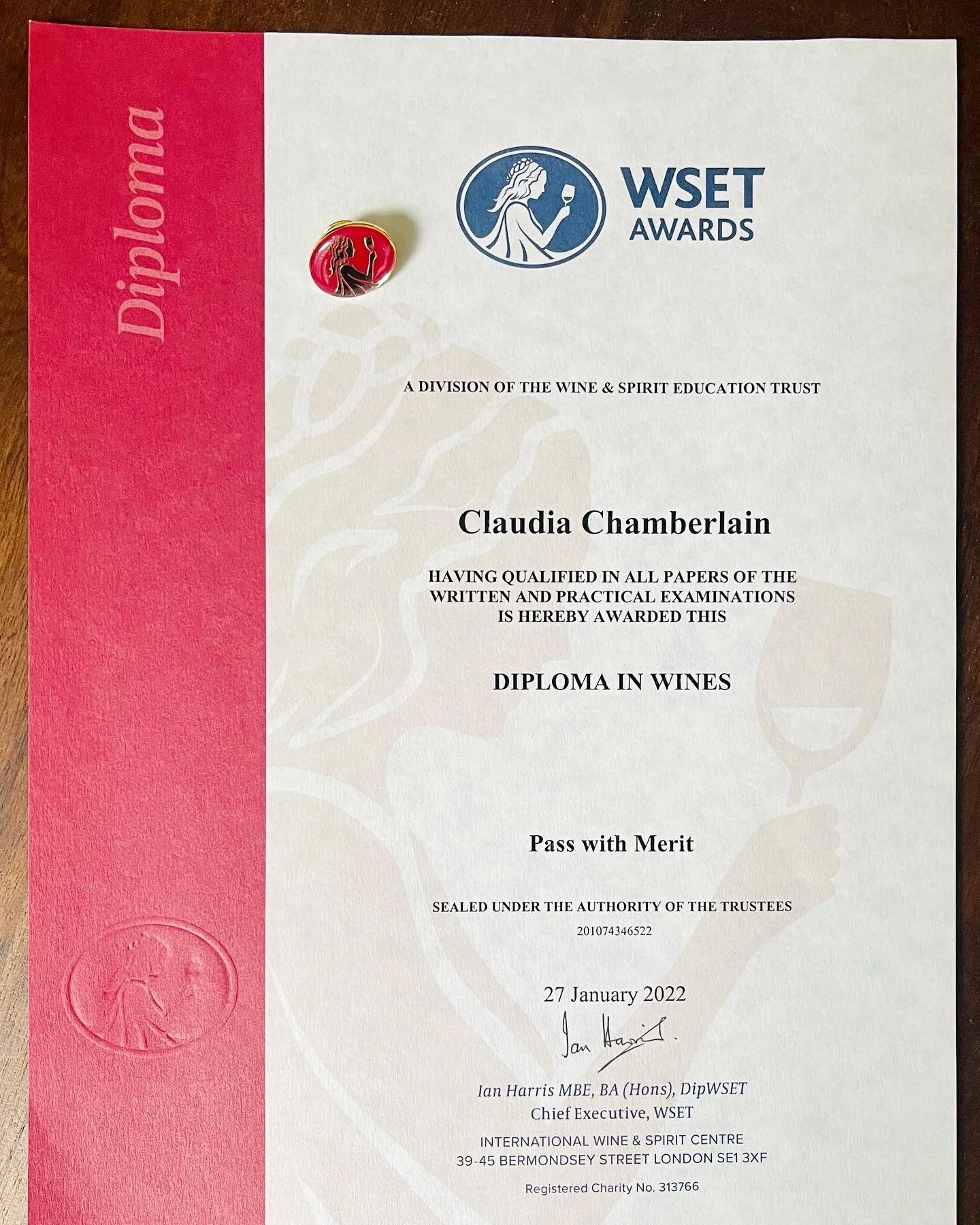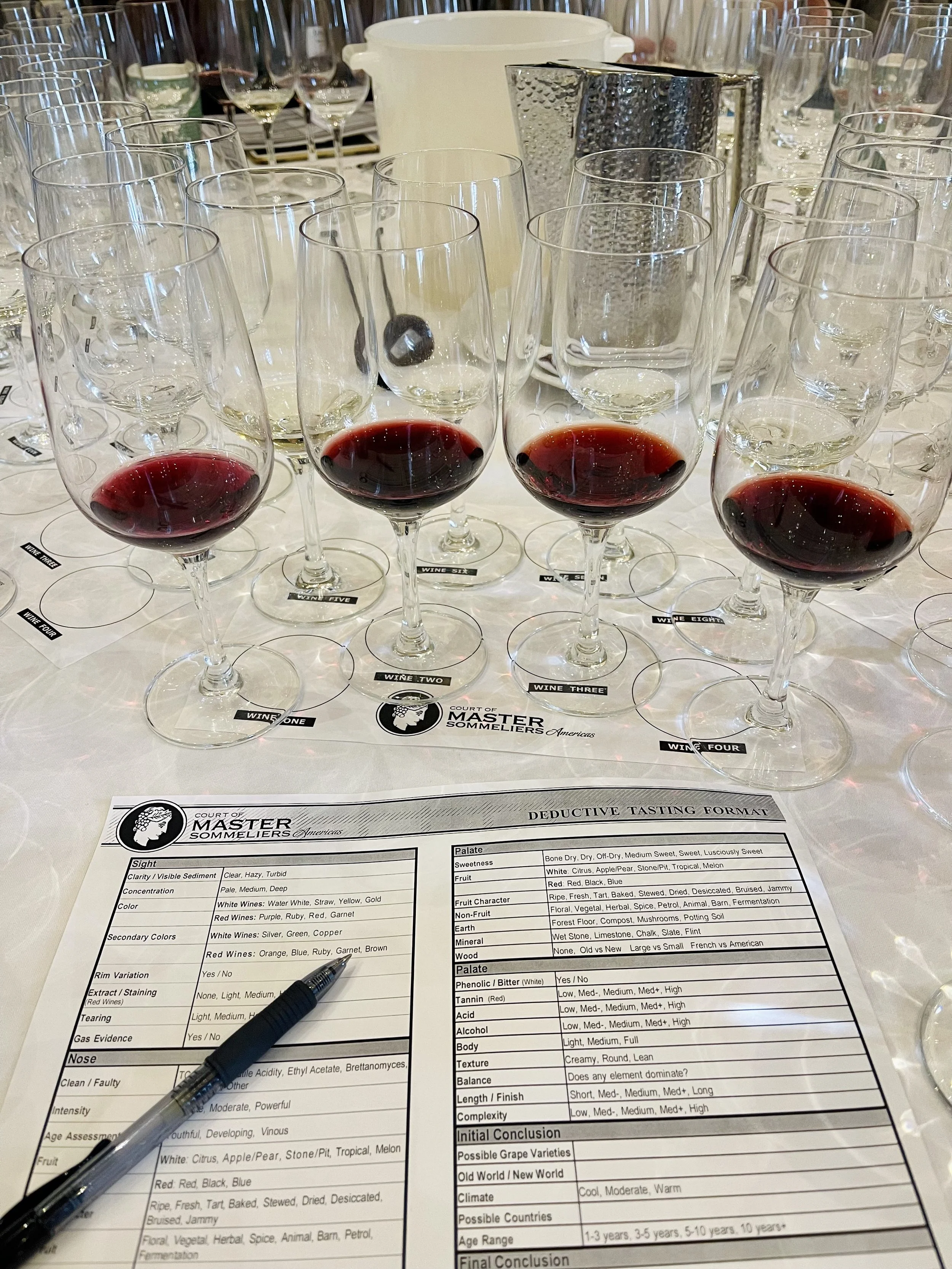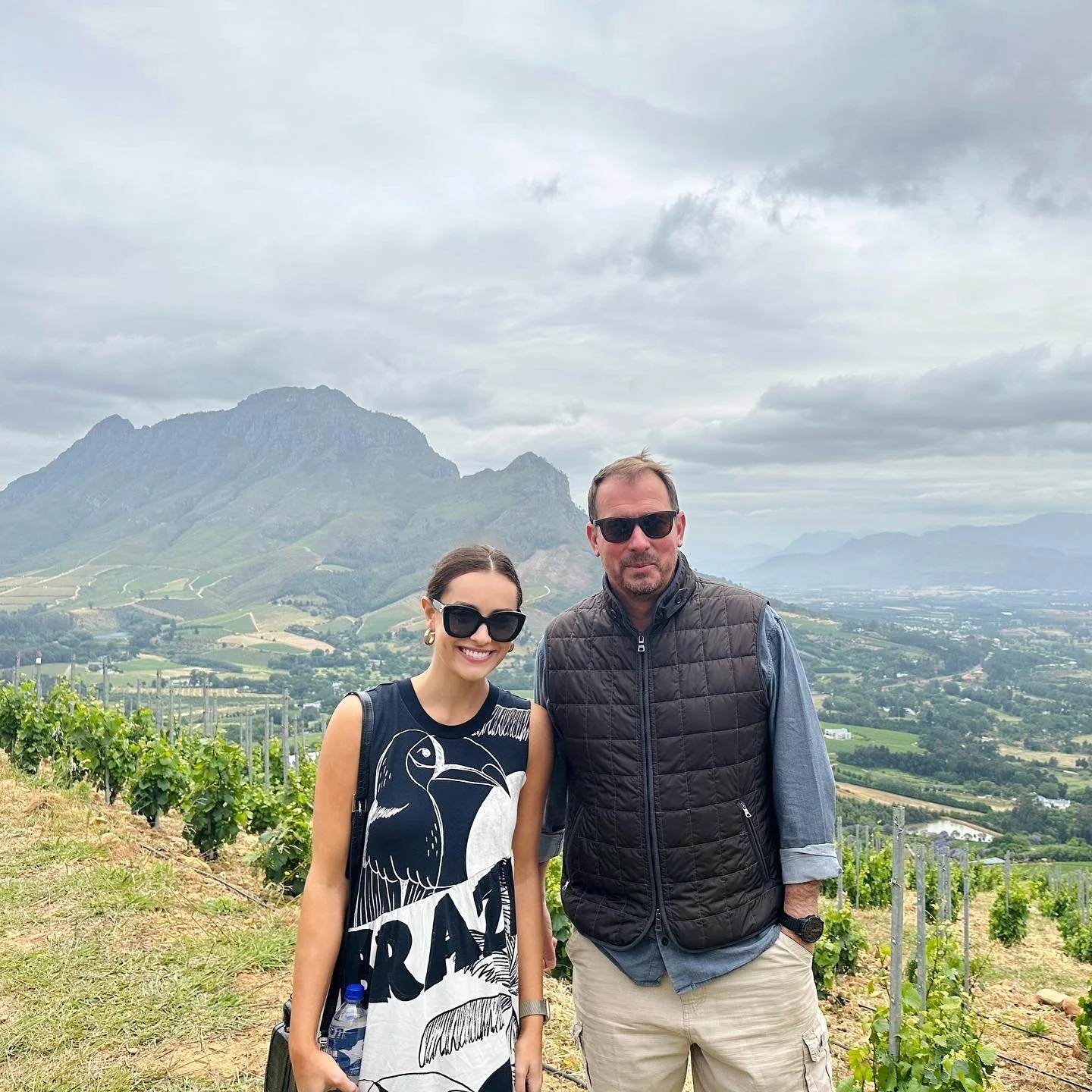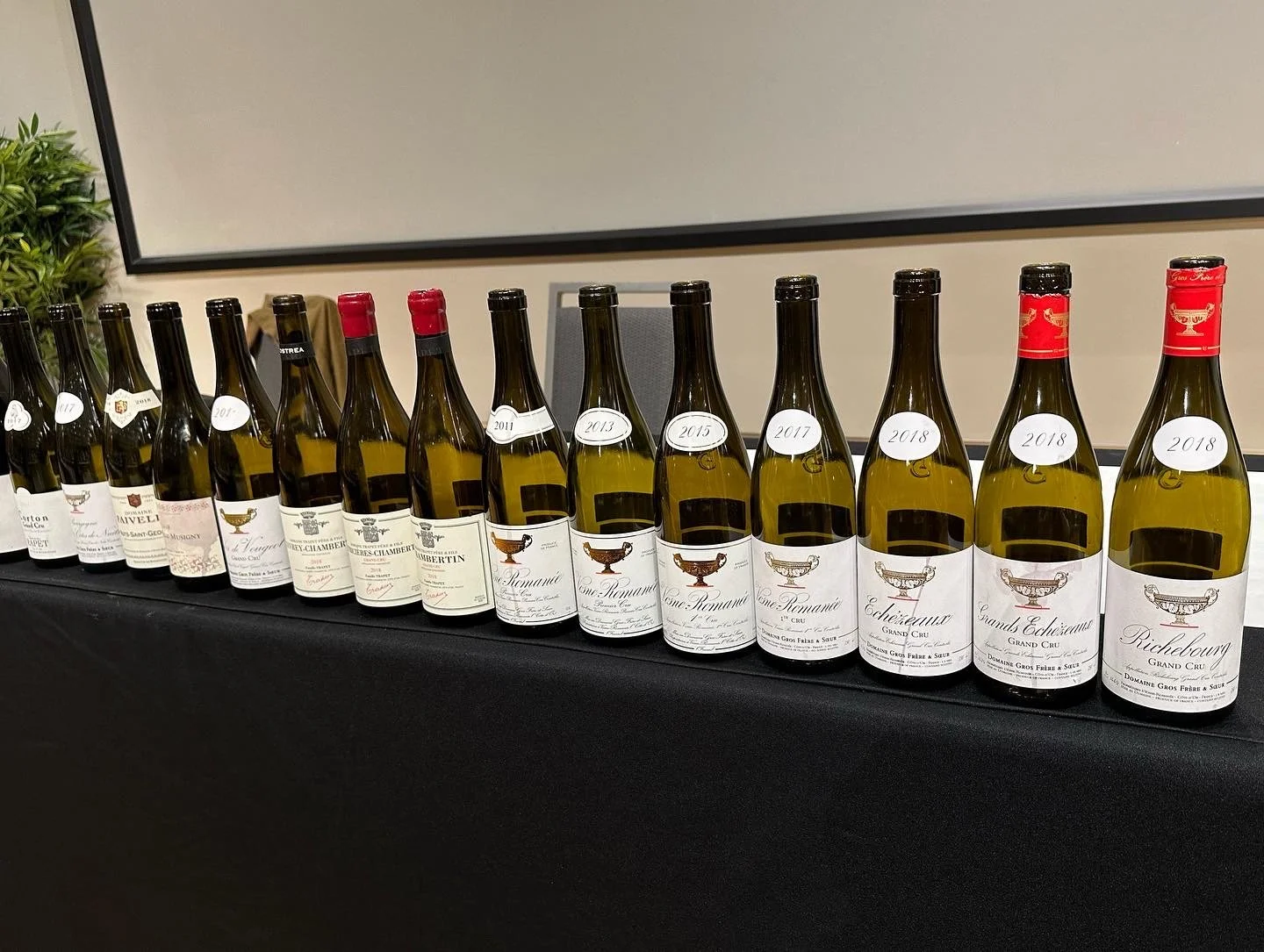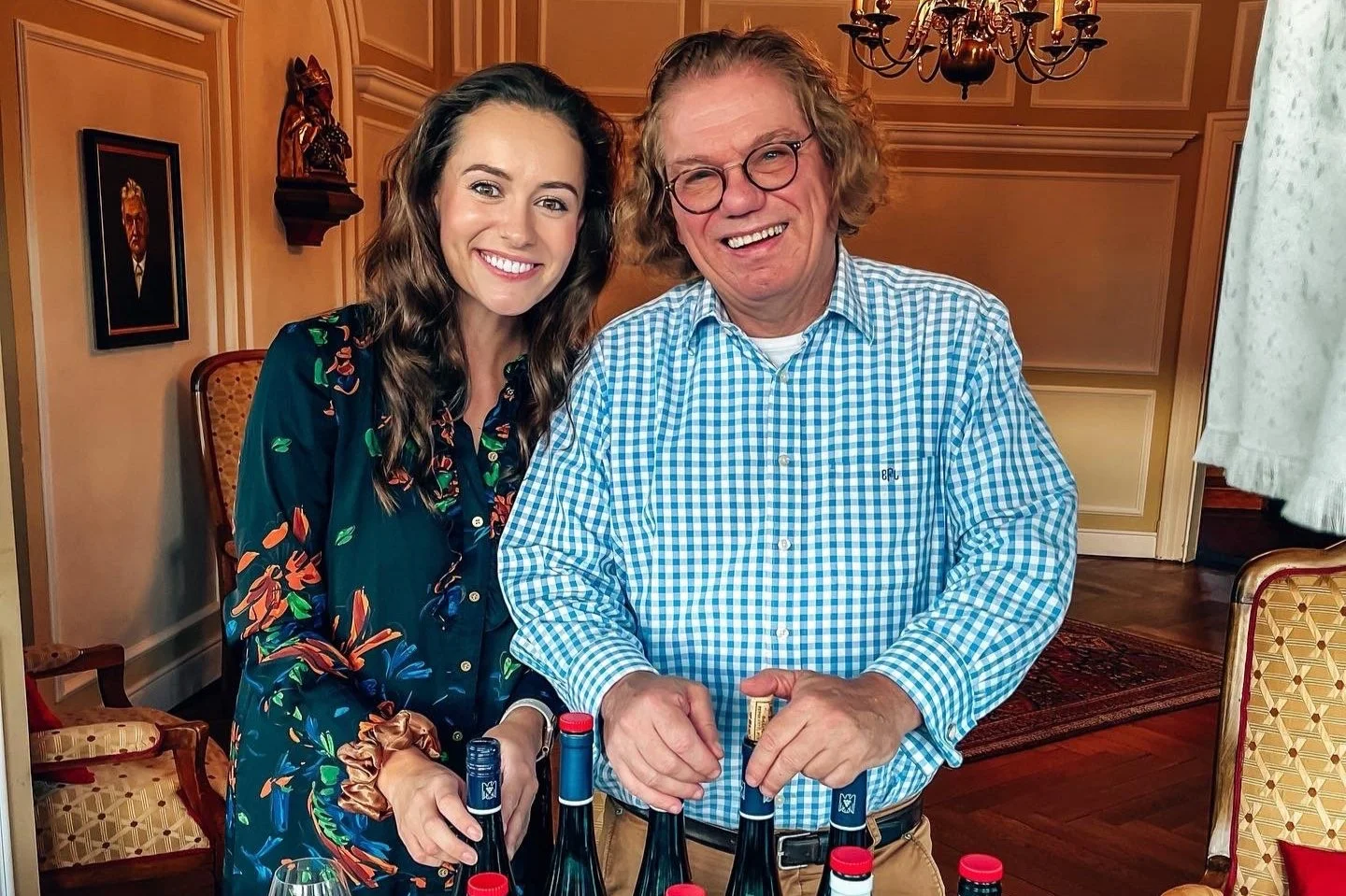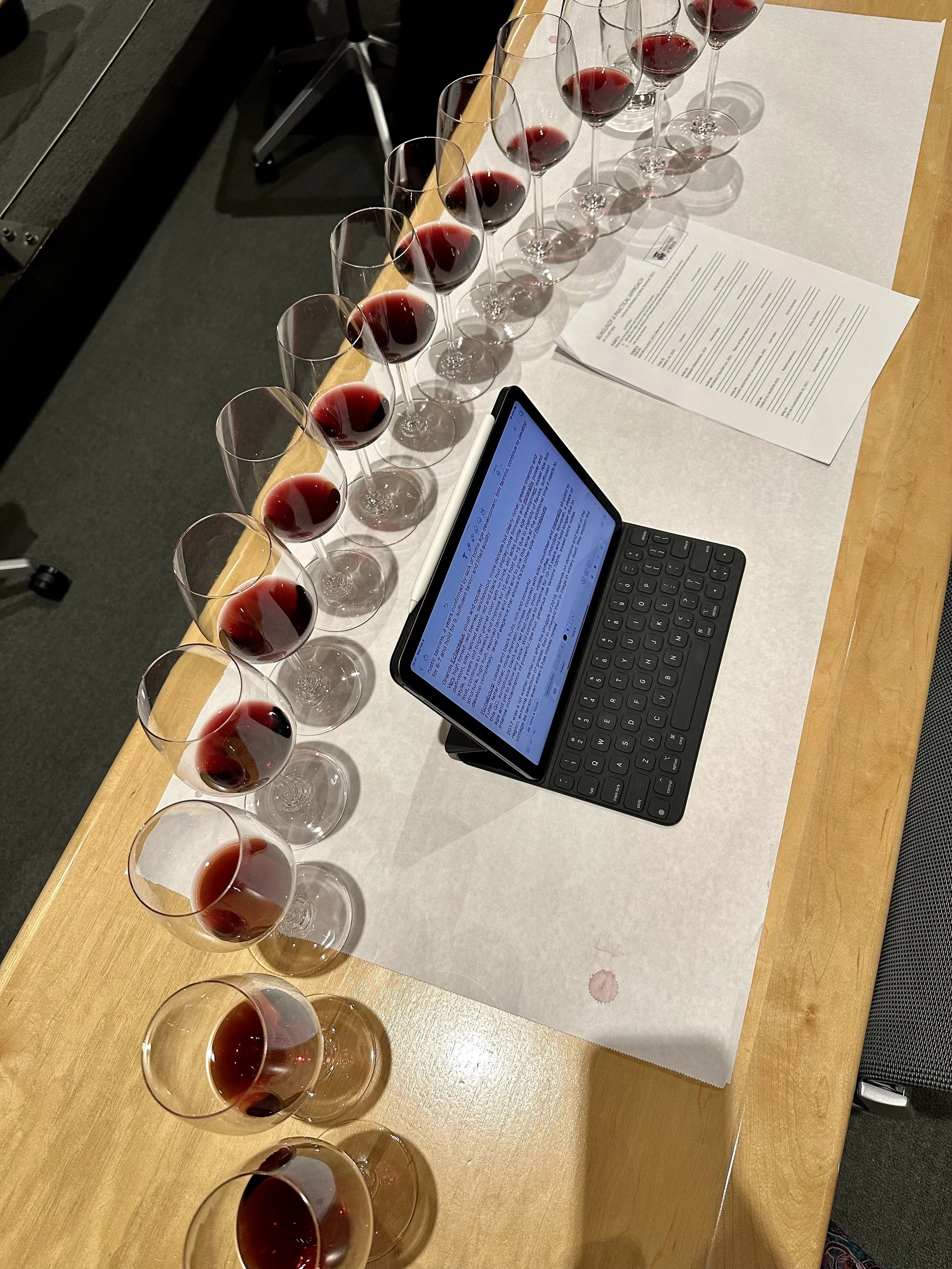Tasting groups- you need community and to be exposed to different styles of wine
Travel- nothing quite like seeing the places/processes up close to make a region/style stick
Build on your foundation- it all links together!
Be a student anywhere- take notes, ask questions, network
Podcasts- there are loads of them out there. I really liked Matthew’s World of Wine and Drink for WSET and Big Vin Theory for MW.
Planning the perfect trip to a wine region
Probably the biggest question that I get asked for are recommendations for people visiting wine regions. It could be a region I’ve visited or one that I’ve just read about. I love these types of questions because I LOVE to travel (and research travel). One of my more off-the-wall study techniques is to pretend that I’m planning a trip to a wine region- picking out the producers I’d want to see, mapping out my route and figuring out where I’d eat and what hotels/towns I’d stay in. It helps me to really understand a region holistically and bring it to life off of the page. So, here are my tips for those of you planning your next trip to a wine region:
Research the top wine towns of that region. Going to Cape Town? You’ll want to look at places like Stellenbosch and Franschhoek Valley. Going to the Mosel? You could stay in Bernkastel or Trier. There are of course many towns within singular wine regions, so you’ll want to research the different options and choose where you want to stay and where you may just want to visit for an afternoon. Once you narrow that down, you can plan your route.
I like to stay in the “bougie” areas that have nice restaurants and things to do, but aren’t necessarily the most remote or the largest options. Condé Nast is really helpful with figuring out where this is because a lot of the time their top hotels for certain parts of the world are in these more bougie areas.
Rent a car. It’s the best way to explore a wine region- they’re often remote and unless you are shelling out for a private driver or coach it is much cheaper than doing guided tours everywhere.
What kinds of activities do you want to do? Research what all there is to do and what might be going on in the region. There might be local wine festivals you could plan your trip around, or cool hikes to go on, or activities like taking a wine train between wineries. Don’t just taste wine. Wine regions are nearly always in the middle of gorgeous natural landscape. Go for a vineyard hike, take a horseback ride through a vineyard, take a local cooking class, visit a museum, bike ride through the towns, try other local beverages like beers and cocktails.
Pretty much anywhere outside of the US, it’s not as easy as just booking a wine tour visit on a website. You often have to fill out the contact form on a webpage or email an address listed on the website to inquire about the visit. This requires planning- many wineries around the world are available by appointment only. You’ll want to start reaching out to them more than a few weeks ahead of your visit.
Which wineries do you want to visit? Try to limit it to a maximum of 3 per day. I like to start by reaching out to the ones whose wines I like seeking out in the US. If you don’t know any wineries or wines of that region yet, that’s not a problem either. A quick google search can help you find wineries, or you can look at a fine dining wine list and see what producers they support from that region to get an idea of some high quality wineries. I’ll usually have a target list of who I want to see; some will get back to me and some won’t. The ones that do get back to me are who I might ask to recommend some other wineries nearby to reach out to.
I feel like I’ve said this a few times already, but wine regions tend to be remote. It’s a good idea to do some research on restaurants (or ask your hotel or the wineries you’re visiting for recommendations) and go ahead and make some dinner reservations.
Happy traveling!
Master of Wine stage 1 recap
Welcome to my first (and maybe only, we’ll see) blog post! I bought this website domain on a whim when unemployed during the pandemic and never bothered to do anything with it. Fast forward several years, and a LOT has happened. I’m now a student in the Master of Wine program. I applied and was accepted to the program in 2022 and managed to pass my stage 1 assessment this past June of 2023. I’m in the midst of preparing for the big, scary stage 2 exam this summer in London. This is a really niche experience of which very few other people can relate to. I’ve found solace and inspiration in reading the blogs of others over the last few years, and I figured I could also take a crack at getting my thoughts down.
14 shades of Grenache at the Seattle seminar
So, I made it through stage 1. First, a quick look back on what brought me here in the first place.
The MW journey kicked off with a phone call with my mentor back in the fall of 2020 when I was in the throes of unemployment and feeling really lost in my career. I wanted to be “pandemic proof” and was disheartened that all of the knowledge and skills I’d spent time amassing still left me back at square one. I was about to start the WSET L4 Diploma and my mentor put the bug in my ear to rip through it and beeline straight for the MW program. So, I did just that. I finished my Diploma with merit in less than 12 months and set my sights on the MW application. My mentor helped me prepare for the MW entrance exams throughout the spring of 2022 and served as my reference.
A lot of big things happened the summer of 2022. At the time I had stepped away from wine and was working for a spirits company. I absolutely loved the role and the company, but knew it was time to move on if I wanted to have any shot at becoming a Master of Wine. Shortly after finishing Diploma, I was asked to start teaching WSET for Capital Wine School. I completed the Educator Training Program over the summer and started teaching all 4 levels in August, and started my new role working for Jackson shortly after. This was all around the time that I found out I’d been accepted into the MW program. It was shaping up to be a really crazy year, to say the least!
Being that I was new in my role and trying to learn my new company and region, the MW studies really didn’t take a front seat. Throw in the added chaos of balancing a teaching schedule and different course materials and I didn’t have much time to dedicate to the program at all- I didn’t attend a single course day, and I only submitted one PAMS and one TAMS. But, this brings me to my first point in a series of takeaways from year 1:
Look at every thing you do as an opportunity to be a student. Just because I didn’t have time for dedicated study, doesn’t mean that I didn’t apply myself towards learning the curriculum daily. I treated my job as a place to ask questions and research topics that could come up on the exam, taking notes during marketing calls and asking our winemakers questions every chance I got.
Looking for a different way to study? Start teaching. I was lucky to be teaching for an MW who allowed me to design classes around wines I wanted to taste and learn more about (it’s true there is no better way to learn something than to teach it to others).
The MW program is what you make of it. It’s incredibly challenging and will push you to your limits, over and over again. Sprinkle in the brutal British way of giving feedback and I started to feel myself wilting over the year. You have to keep your mental fortitude strong and view it as part of the journey.
There is a syllabus of sorts, but the true curriculum is derived from looking at the past exams. Before I got accepted into the program, I pulled the last 10 years of exam questions and put them in a massive spreadsheet. You start to see the bigger themes of topics that you’ll need to be prepared for come exam time.
The MW theory exams are divided into 5 papers, or topics. The next thing that I did was look at each paper and divide the past exam questions into 6-8 subtopics. I try to do one subtopic per week, covering relevant materials, looking at examiners’ reports and ultimately writing outlines for the topics.
My first seminar experience: I attended the Seattle seminar and added on the weekend in Woodinville, WA ahead of the week, which I’m so glad I did because I met some great students who became my friends that week and are still my friends today. I chaotically took an Uber to go buy an iPad the day before the seminar because one of my new friends had one and I figured it could fix all my problems (easily influenced, as per usual). Hilariously enough, the iPad is not really useful for my MW studies but is hands down the only reason I managed to pass the Advanced Sommelier exam later that year (more on that in another post sometime). The seminar was A LOT. I hadn’t been to any course days, and I hadn’t done much real studying, so I felt really far behind once I started to meet other students. A lot of people already had study groups at this point too, another thing I hadn’t really had time to think about. I felt like my brain broke and reformed about 15 times this week. I also tried to save money by not staying at the recommended hotel and accidentally ended up in a really terrible one (a homeless person tried to break into my room in the middle of the night and I had to call 911). It was an exhausting week but I came out of it finally feeling like I knew which way was up. At the end of the week, I scored a 66% on my mock (passing at the Stage 2 level) and got some really encouraging feedback that I was well equipped to pass stage 1 and should focus instead on preparing for the big exam.
I also applied for and went on the stage 1 student Bordeaux trip. This was an amazing experience- not just in the places I got to visit, but also because I got to see how to handle finding examples for the exams. This was another really exhausting week, but I was so happy to be back with my new MW friends and meet new ones. Highlights: ordering demi (baby) beers every chance I got with my friends Bella and Gaby, and having dinner at Chateau d’Yquem!
I really dialed in after I got through Advanced Somm theory in mid April, and the MW stage 1 exam wasn’t until the beginning of June. So I spent a month and a half really looking at the perennial topics and preparing for practical (tasting). I also paid to attend a practical bootcamp in early May and this was easily some of the best money I spent throughout the year. It’s invaluable to get individual feedback from MWs in a mock exam setting.
My tasting preparation was, I imagine, a little different from most other MW students. I live in DC and the only other MW students around me are a few hours driving away. They mailed me wine samples to use for blinds but I didn’t keep up with them and ended up wasting a lot of the samples. How did I pass tasting, then? I’ve been part of the DC CMS-focused tasting group since I moved here, and I continued to show up for that weekly. They didn't cover all of the wines that I needed to taste, but they did cover the classics with great intensity and the verbal nature of the tasting helped me to assess wines with speed. I also taught a lot of WSET classes throughout the year and having to teach tasting over and over again allowed me access to WSET samples regularly, as well.
The MW program is prohibitively expensive. I was awarded a few scholarships in year one that helped to lessen the financial burden and helped to cover some of the tuition fees. I booked a lot of my flights for the required travel on points and stayed with other students where possible to cut down on hotel costs.
